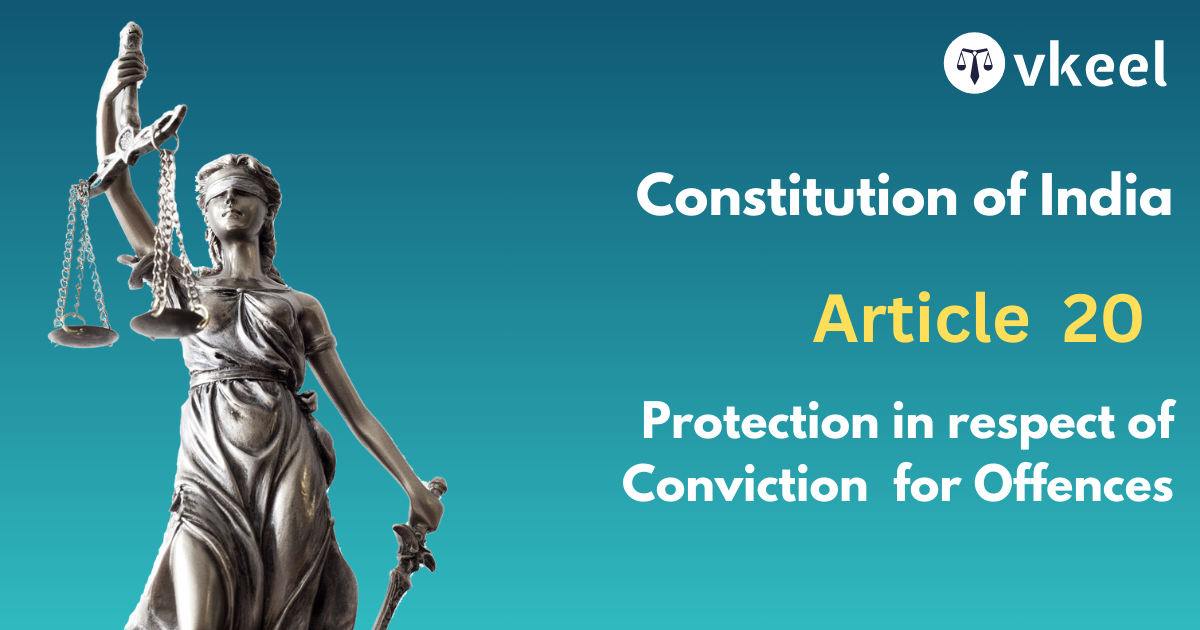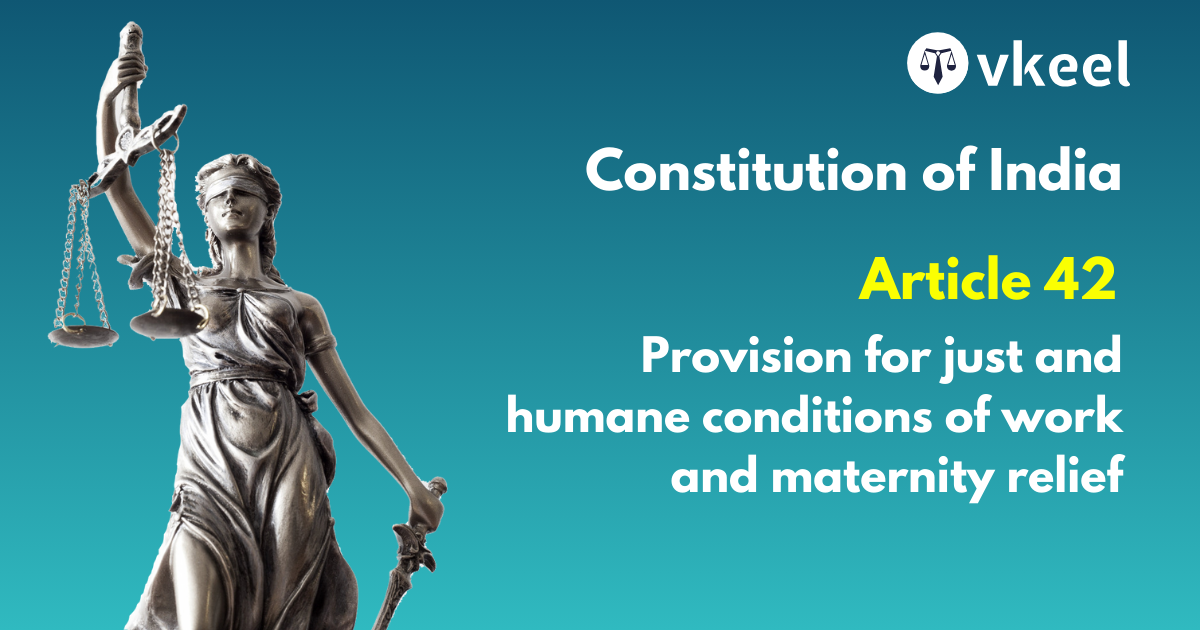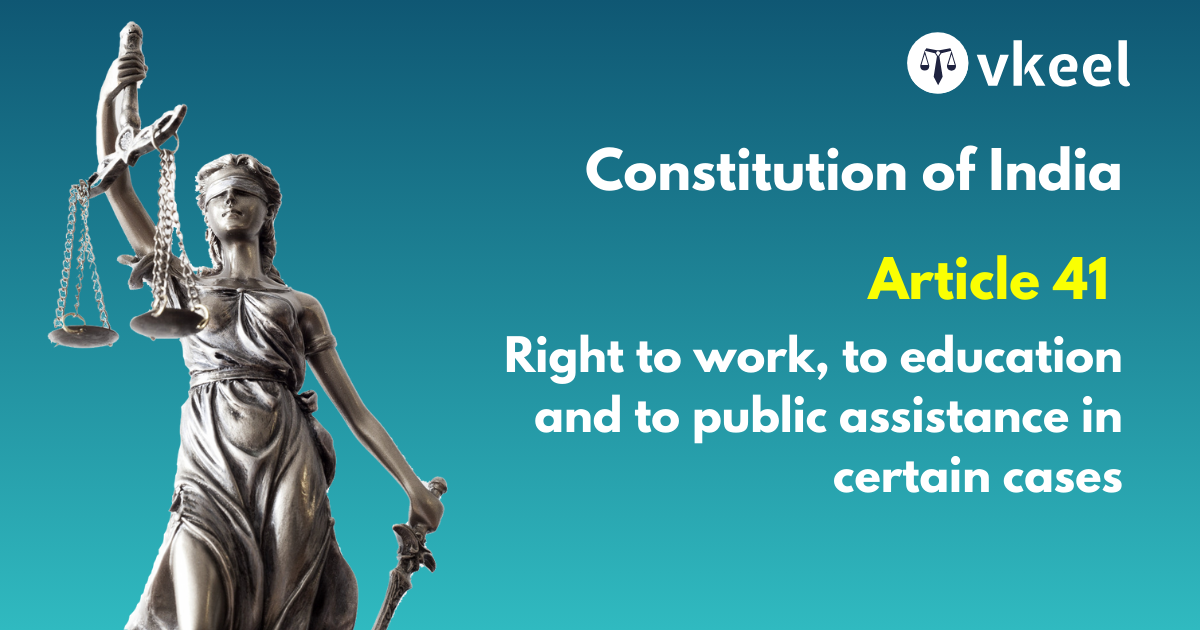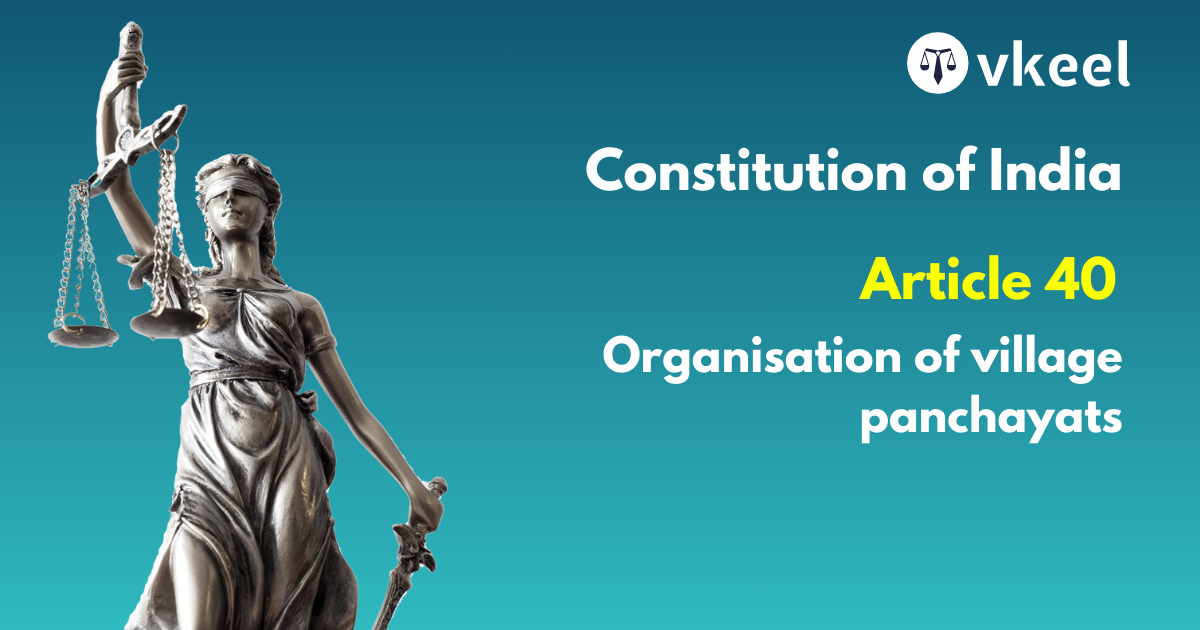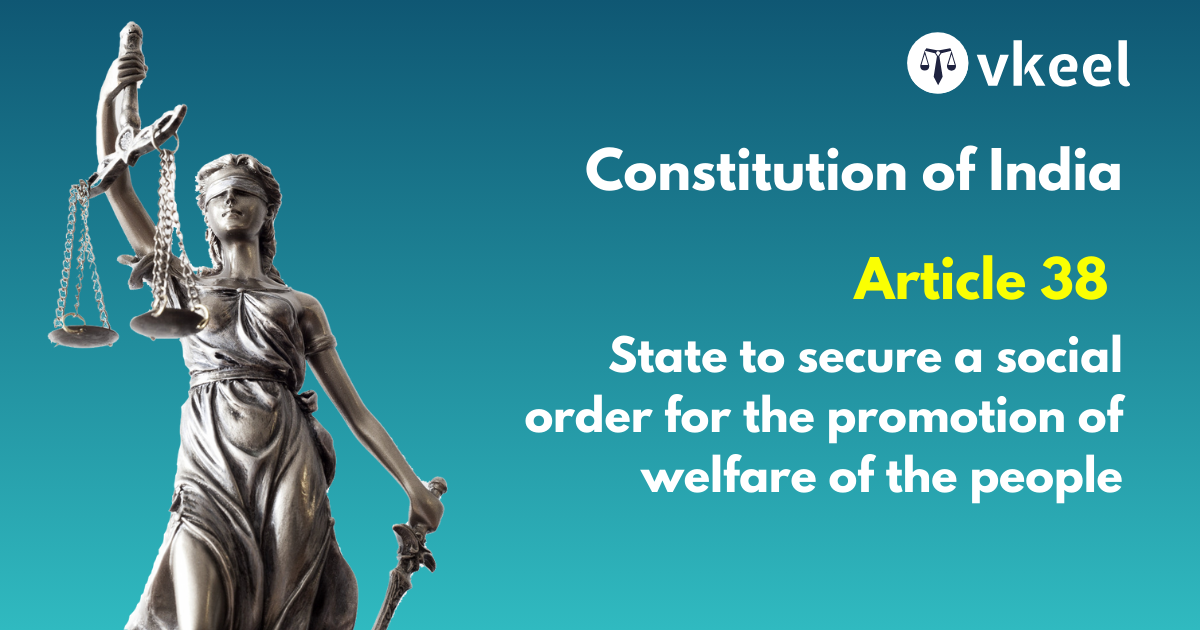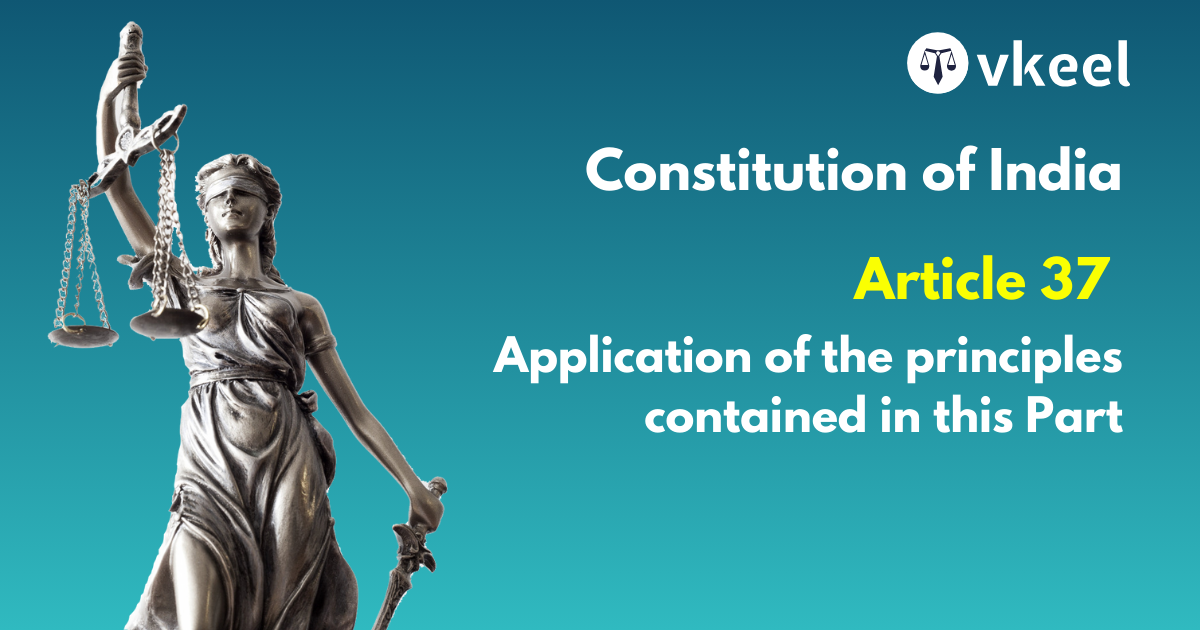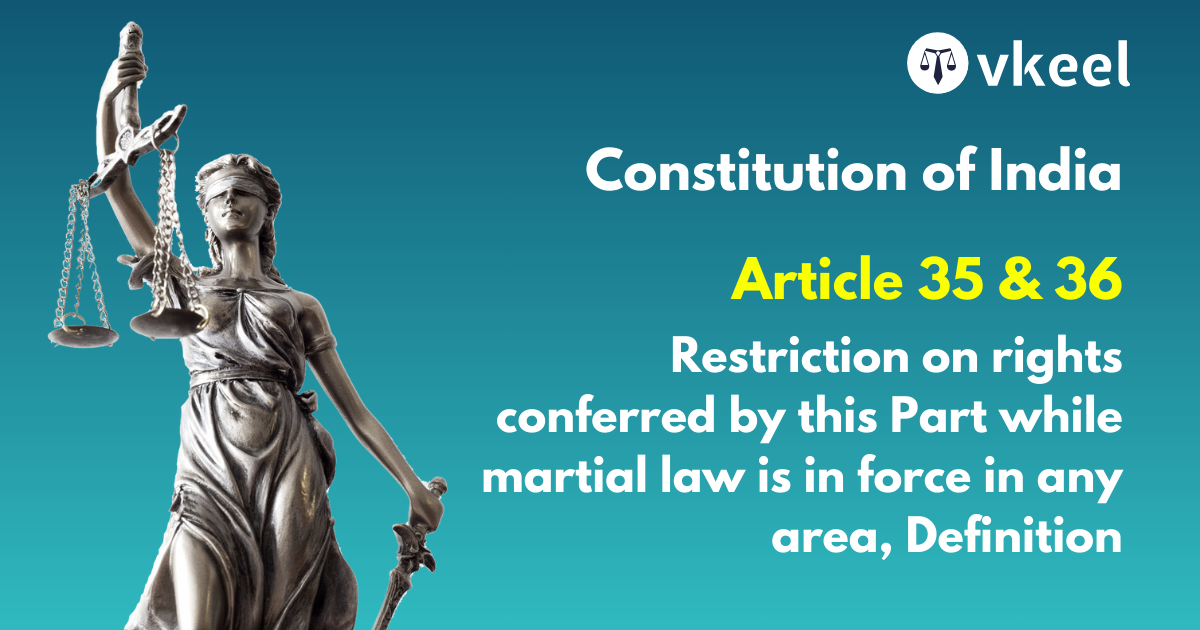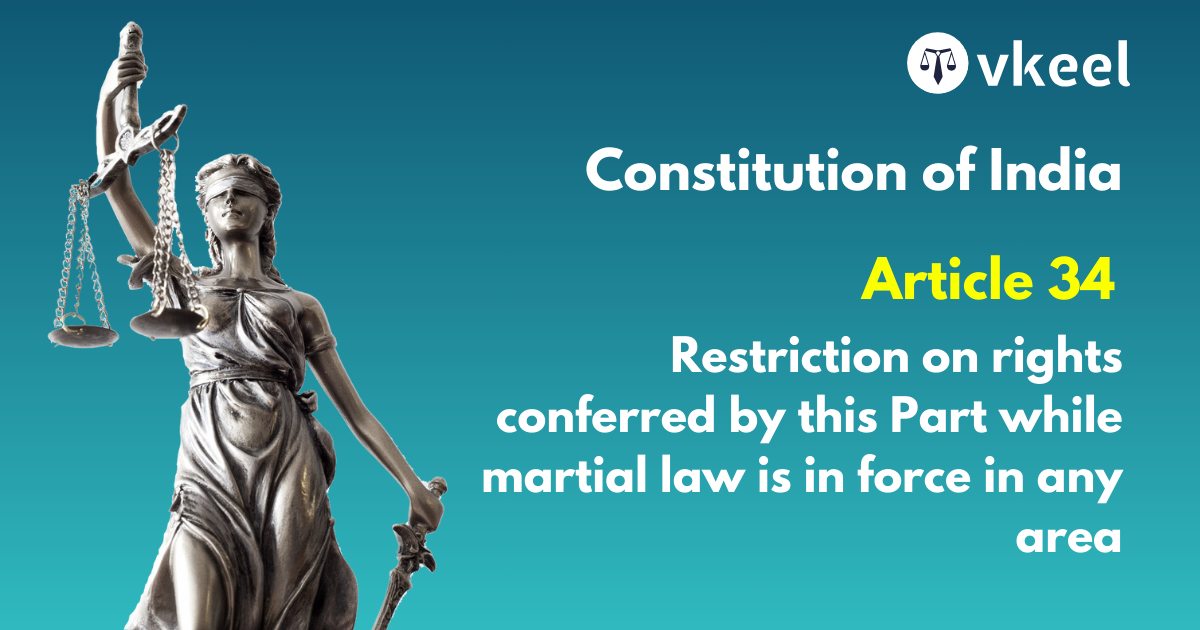Article 20: Protection in Respect of Conviction for Offences
By Vanshika Saini
Table of Contents
Introduction
The Article 20 of the Constitution has been safeguarding the rights of persons accused of crimes. The Forty-Four Amendment provides that the Article cannot be suspended even at the time of emergency under Article 359. Searching of the premises of the accused person, for an offence under a search warrant and seizure of the original documents are violative of the Article 20(3).
Article 20
Protection in respect of conviction for offences.—(1) No person shall be convicted of any offence except for violation of a law in force at the time of the commission of the Act charged as an offence, nor be subjected to a penalty greater than that which might have been inflicted under the law in force at the time of the commission of the offence.
(2) No person shall be prosecuted and punished for the same offence more than once.
(3) No person accused of any offence shall be compelled to be a witness against himself.
Landmark Judgements
G.P. Nayyar vs State ( Delhi Administration) Clause (1): Conviction and Punishment under Ex post facto Lawς Interpretation: Concerned as it is with the liberty of a person, a liberal construction has to be given to the language used in article 20(1) and not a narrow one.2 Ex post facto laws: Ex post facto laws which retrospectively create offences and punish them are bad as being highly inequitable and unjust. Article 20(1) deals with ex post facto laws though that expression has not been used in the article. Usually, a law prescribes a rule of conduct by which persons ought to be governed in respect of their civil rights. Certain penalties are also imposed under the criminal law for breach of any law. Though a sovereign legislature has power to legislate retrospectively, creation of an offence for an act which at the time of its commission was not an offence or imposition of a penalty greater than that which was under the law provided, violates article 20(1).3 All statutes must be interpreted as prospective in operation, unless retrospectivity is expressly declared by the statute or can be inferred as the necessary intendment from the language used in the statute.
Sajjan Singh vs State of Punjab 1964 A statute could not be said to be retrospective because a part of the requisites for its action was drawn from a time antecedent to its passage by the legislature. The general principle that the fundamental rights have no retrospective operation is not in any way affected by giving the fullest effect to the wording of article 20. This article must be taken to prohibit all convictions or subjections to penalty after the Constitution in respect of an ex post facto law whether the same was a post-constitution law or a pre-constitution law. That such is the intendment of the wording used in article 20(1) is confirmed by the similar wording used in articles 20(2) and 20(3). Under article 20(2), for instance, it cannot be reasonably urged that the prohibition of double jeopardy applies only when both the occasions therefor arise after the Constitution. Similarly, under article 20(3) it cannot be suggested that a person accused before the Constitution can be compelled to be a witness against himself, if after the Constitution the case is pending.
Shiv Bahadur Singh vs State of Vindhya Pradesh The prohibition contained in article 20 of the Constitution against convictions and subjections to penalty under ex post facto laws is not confined in its operation to post-constitution laws but applies also to ex post facto laws passed before the Constitution in their application to pending proceedings.
Biswanath Bhattacharya vs Union of India It is a well settled principle of constitutional law that sovereign legislative bodies can make laws with retrospective operation; and can make laws whose operation is dependent upon facts or events anterior to the making of the law. However, criminal law is excepted from such general Rule, under another equally well settled principle of constitutional law, i.e, no ex post facto legislation is permissible with respect to criminal law. Article 20 contains such exception to the general authority of the sovereign legislature functioning under the Constitution to make retrospective or retroactive laws.
The constitutional right guaranteed by article 20(2) against double jeopardy can successfully invoke instituted or proceedings on which reliance of a criminal in the procedure pure continued before a court of be placed an accordance with the procedure prescribed in the statute which creator tribunal and regulates the procedure.
Confiscation of goldolint the customs authorities brought illegally without RBI permission dous erat ticle 20(2). The crustecution and confiscation does not cont punishment under af dehstitute a judgestorms authorities are not a judicial tribunal and pun action does not constitute a or order of a court or tribunal to support the ples of double person must proceedings in connection with the pho support thd punishment of a person must be in the nature of a criminal proceeding before a court of law or a judicial tribunal, and not before a tribunal which entertains a departmental or an administrative enquiry even though set up by a statute but which is not required by law to try a matter judicially and on legal evidence.
An order made by an adjudicating authority is not that of conviction but of determination of the breach of the civil obligation by the offender. Even after an adjudication by the authorities and levy of penalty, the defaulter can still be tried and punished for the commission of an offence under the penal law, where the act of the defaulter also amounts to an offence under the penal law and the bar under article 20(2) of the Constitution in such a case would not be attracted. A penalty imposed for a tax delinquency is a civil obligation, remedial and coercive in its nature, and is far different from the penalty for a crime or a fine or forfeiture provided as punishment for the violation of criminal or penal laws.
Conclusion
To conclude the aforesaid article of the Indian Constitution, enumerates the tales of public tranquility in the nation. Thereafter the provision envisages regarding the double jeopardy of the offences prevailing in the country. It is rightful to mention that the provision stands on the Fundamental pillars of fairness, accountability, transparency, responsibility.
Disclaimer:
The information provided in the article is for general informational purposes only, and is not intended to constitute legal advice or to be relied upon as a substitute for legal advice. Furthermore, any information contained in the article is not guaranteed to be current, complete or accurate. If you require legal advice or representation, you should contact an attorney or law firm directly. We are not responsible for any damages resulting from any reliance on the content of this website.

